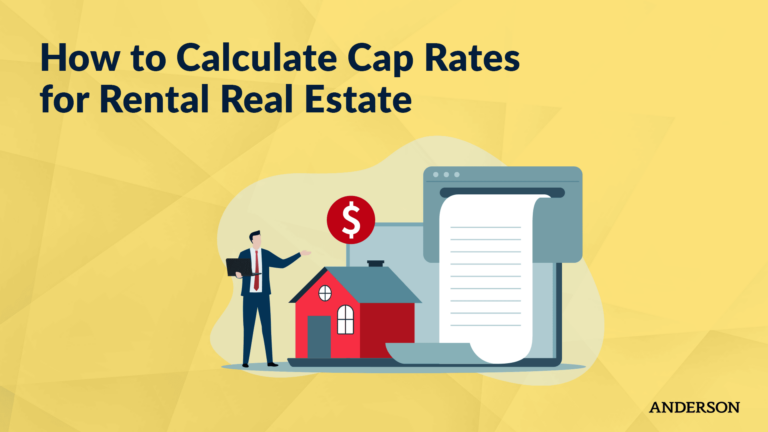In this episode of Coffee with Carl, attorney Carl Zoellner covers the basics of the homestead exemption for your personal residence.
Updated November 23, 2021
Homeownership comes with financial risk—but the homestead exemption can offer powerful protection. Governed by state law, homestead exemptions help shield the equity in your primary residence from unsecured creditors, reduce property tax liability, and provide stability during financial hardship or after the loss of a spouse. Because the rules and benefits vary widely by state, understanding how homestead exemptions work is a critical part of smart tax planning and asset protection. Below, we break down what qualifies as a homestead, how exemptions work, and the four key benefits every homeowner should know.
At our Tax & Asset Protection Workshop, we briefly talk about the homestead exemption. This is a question I receive commonly from Platinum clients. So, let’s break this down.
Ultimately, the homestead exemption is a creature of state law. Thus, the nature of the exemption varies from state to state. However, in general, exemptions for your personal residence exist to protect the equity in your home.
4 Benefits of Homestead Exemption Laws
- Protects Against Creditors
- Provides Financial Stability During Times of Stress
- Lowers Tax Liability
- Gives Shelter to Surviving Spouses
Homestead laws vary from state to state, as do their origins. In the South, for instance, many homestead exemption laws derive from the laws of the Spanish Empire. In other parts of the country, homestead exemptions were signed into law as a response to shifting economic factors. Either way, homestead exemptions typically serve four purposes: (1) to prevent a forced sale of a home to creditors, (2) to give a surviving spouse shelter, (3) reduce property taxes, and (4) allow tax exempt homesteaders to still vote on tax increases for those homeowners to whom such exemptions do not apply.
What is a Homestead?
You’re probably wondering what a homestead is. It doesn’t refer to 40 acres of land out West that can become yours if you pay a nominal fee and make an improvement, you know, like building a log cabin. Instead, homestead protection is meant to help a property owner stay in their permanent residence. So, in this case, a homestead means your primary residence.
A vacation home or rental property cannot be a homestead property. However, someone whose principal residence is a duplex, triplex, or quadplex, and who genuinely does live in one of the units most of the year can certainly claim the entire piece of real estate as their home on a homestead exemption application.
Did you know that the average American family has almost $7k in credit card debt? And that more than 45 percent of adults have outstanding credit card debt? This is bad news, even for families that are comfortable with their household income. That’s because any kind of unexpected event can cause serious havoc in terms of paying the bills and paying their mortgage on time. In some cases, a creditor may decide to recoup their losses by forcing a borrower to sell their primary residence to satisfy the debt. While this is an unlikely scenario for a large bank that you’re carrying a balance of a few hundred or few thousand dollars with, it’s not unlikely if you are tens of thousands of dollars in debt and insolvent.
Unfortunately, many consumers despair of possible solutions when it comes to this type of situation, but filing for bankruptcy can easily get their debts discharged, and homestead exemptions can prevent creditors from forcing a sale of their home.
4 Benefits of Homestead Exemption Laws
Homestead exemptions offer many protections for homeowners, including:
1. Protects Against Creditors
The first very tangible benefit of a homestead exemption is protection from creditors. However, this does not refer to secured creditors, like the bank, that gave you a mortgage. Rather, a homestead exemption refers to unsecured creditors, like those who provide borrowers with credit cards, personal loans, and student loans. In some cases, utility companies, landlords, and hospitals may also be unsecured creditors.
In most states, the homestead exemption protection against creditors has financial limits. Generally speaking, these limits range from $5k to $500k, with most states falling around $30k to $50k. These protection limits refer to the amount of equity the homeowner has in the home, and not the value of the home itself. Whatever the limit is, if the amount of equity the borrower has in their home is less than that limit, the home cannot be taken from them. For instance, a handful of states have limits of $5k, while California has a limit of $600k. In Arkansas, Florida, Iowa, Kansas, Oklahoma, South Dakota, and Texas, there are no limits. New Jersey and Pennsylvania do not offer homestead exemptions at all.
So, for example, if a permanent resident of a state with a homestead exemption limit of $50k had less than that amount of equity in their home (that is, the property value minus the outstanding balance of their mortgage), they could not be compelled to sell their home to settle—say, credit card debts or a hospital bill. But if they had more equity, they could be compelled to sell their residence to satisfy these debts.
In some states, the homeowner would be allowed to keep a portion of the proceeds. Keep in mind, though, that the details of how a homestead exemption works are extremely different from state to state, so it’s best to check with a tax expert who understands them.
2. Provides Financial Stability During Times of Stress
Homestead exemptions also help homeowners through stressful times, whether it’s related to loss of income, a family member, or serious injury. At times like these, many homeowners feel like they cannot get back on track with paying their bills, including bills to outstanding creditors.
Alternatively, a new debt may have even fallen into their lives, such as a large hospital bill. Homestead exemptions prevent these unsecured creditors from taking the home, and gives struggling borrowers the chance to get back on their feet.
We mentioned that homestead exemptions do not assist in warding off a secured debt, like a mortgage. A bank or lender can still initiate foreclosure proceedings on the property. In these cases, a homeowner may be able to file for bankruptcy. Certain types of bankruptcy allow a person to restructure their debts and create a payment plan to satisfy the mortgage lender, but in other cases, it cannot prevent the creditor from taking the home.
3. Lowers Tax Liability
Another benefit to the homestead exemption is that it creates a lower property tax bill for homeowners. You can find out if you are eligible for a homestead tax exemption by checking with your local county assessor. Many times, you will need to fill out an application that gauges your eligibility based on considerations like age, income, disability, and veteran status. There may also be a nominal fee to pay, but once you have secured a homestead tax exemption, you’ll find that it’s a great way to pay less taxes.
For instance, let’s say the assessed value of your home for the tax year (according to the county assessor) was $400k, but the homestead tax exemption in your state was $50k. This means instead of paying, say, a one percent property tax on $400k, you would pay it on $350k, resulting in tax savings of around $500 ($3,500 instead of $4k). Just like most homestead exemption rules, these limits differ from state to state—some states use dollar amounts to set the limits, while others use percentages.
4. Provides Shelter for Surviving Spouses
Homestead exemptions help surviving spouses (and other dependents) stay in their family home. This is accomplished both in terms of preventing creditors from taking the home, and the progressive tax code that provides ongoing property tax relief.
Again, it’s important to keep in mind that the homestead exemption cannot prevent a secured creditor from initiating foreclosure proceedings. Moreover, if you don’t specify who the home will go to in a living will, it can fall into the mire of probate or become subjected to the claims of entitled relatives. And even if you do make sure it’s transferred to your intended beneficiaries, estate taxes can do some serious damage, and in some states the value of the home will be reassessed.
This is why it’s important to think forward and protect your loved ones by creating a tax planning strategy for your estate. Schedule a free consultation with an Anderson Advisor’s estate planning expert today.
How to Apply for a Homestead Exemption
The easiest way to apply for a homestead exemption is to fill out a homestead application through the local county assessor. The county assessor (not to be confused with county auditor) is the branch of local government that is responsible for assessing the value of property for the purpose of property taxes.
As previously mentioned, there may be additional considerations they assess, especially as it relates to the tax exemption component of homestead laws. So, be prepared to answer questions in regards to age, gross income, disability and veteran status when applying for a homestead exemption.
Homestead Exemptions Help Homeowners During Times of Need
The homestead exemption’s overall intention is to help people stay in their family home without the risk of losing it to creditors. It also lowers the tax obligations for living in the home, giving qualifying homeowners the opportunity to catch up on unexpected expenses.
And while homestead exemption laws provide a lot of benefits, they won’t protect you in every situation. It is still possible to lose a home through foreclosure proceedings. Moreover, the homestead exemptions only apply to primary residences; not vacation homes or rental properties.
It’s important for homeowners to examine each and every property tax exemption and property tax credit they can take advantage of to reduce their tax bill—whether they qualify for a homestead exemption or not. That’s why we invite you to join our Tax Tuesday Webinar. Each week, our financial experts discuss tax-saving strategies to help Americans keep more of their hard-earned money.
We look forward to helping you lower your tax liabilities!
Watch as Carl explains the basics of the homestead exemption.
BONUS VIDEO
Receive a detailed risk assessment to assist in lowering problem areas that could wipe out all of your assets with one wrong move. Speak with an Anderson Professional Advisor to get your FREE Strategy Session.
Limited-Time Offer: ($750 value.)












